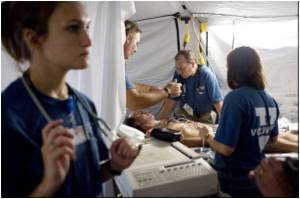According to new findings more than one-fifth of people who have received referrals to test for cancer-causing genes say they will only undergo testing if their insurance covers the cost.

But given how expensive genetic testing can be, Matro recommends that researchers learn more about which patients are most at risk and truly need testing, to spare those who may not carry enough compelling risk factors. "We need to discover more risk factors for genetic mutations, so we can spare those patients who really don't need to pay for genetic testing."
"Genetic testing is now routinely integrated into cancer care," says Matro. If someone develops a colorectal cancer, for instance, a reflex preliminary screening test is done on the tumor to identify patients at risk for Lynch syndrome, which would put them at risk for other gastrointestinal cancers, endometrial, and renal cancers, among others. If the test is positive, the patient is then referred for additional testing to diagnose Lynch syndrome. If the screen is negative, no additional testing is done. This preliminary screen is generally covered by all insurers, but patients may be asked to pay some of the cost if additional testing is needed.
To determine whether these costs affect patients' decisions to obtain genetic testing, Matro and her colleagues at Fox Chase reviewed data collected from 406 people whose doctors suspected they may have cancer-causing mutations, based on their personal and/or family history.
The researchers found that 82 people—21.3%—said they would undergo genetic testing only if it was paid for by their insurance. Among those willing to pay some out of pocket costs, nearly 90% provided a limit for how much they would pay; most limited out of pocket costs to $500 or less.
Not surprisingly, people who were more worried about their risk of cancer and had more positive attitudes towards genetic testing were more willing to pay higher costs. Interestingly, women, people who were less educated, and those with more first-degree relatives who had cancer were less likely to agree to high co-pays for genetic testing.
Advertisement
Source-Eurekalert









